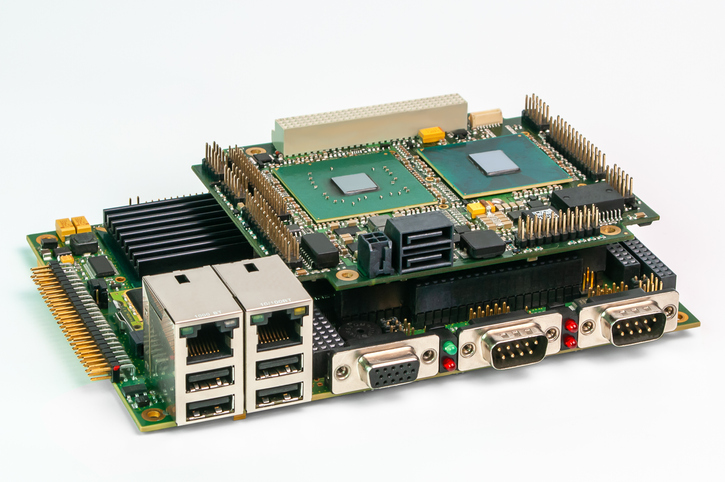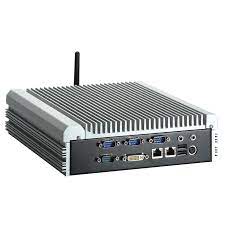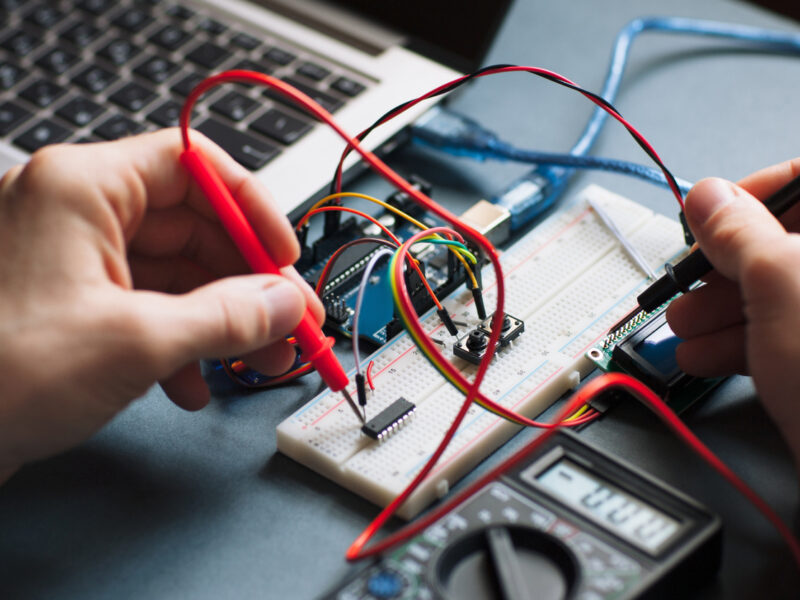Embedded computers are just like little computers. However, instead of being standalone systems, they function as part of the device, instead. This allows them to function with minimal human intervention across various industries such as automotive industrial computing, healthcare, and more. These computers have evolved along with technology and, thus, do not resemble traditional computing devices at all. Let us learn more about embedded computers.

Types of Embedded Computers
There are four types of embedded PCs present today. These systems are:
- Network: These industrial computers are connected to the network grid which provides outputs to devices such as security systems and ATMs with the help of sensors.
- Real-time: These embedded systems operate on a deadline. Their main role is to complete tasks within a defined time. They are popularly used in sound systems and aircraft monitoring systems.
- Stand-alone: These systems are self-sufficient. They do not depend on external sources to assist them in tasks. Popular examples of their uses can be found in gaming systems and electrical appliances such as microwaves and washing machines.
- Mobile: Comparatively smaller than the rest, they are equipped with limited memory space. However, they are quite portable which is why people prefer them. Examples of mobile embedded systems are smartwatches and smartphones.
Features and characteristics of embedded computers
Given below are a few features which define why embedded computers are efficient at tasks:
- Minimal maintenance issues: Embedded computers are thoughtfully designed to work 24 hours a day without interruptions. Their design makes them very reliable since they barely require any maintenance in their lifetime.
- High cooling: Traditional computing systems are dependent on fans for cooling purposes. However, this type of cooling mechanism can fail at any time. Most embedded computers are built in a way that they do not require fans for cooling. Through the development of technology, these devices are created in ways that are resistant to heating and other elements. With no fans required, embedded computers make less noise and consume less space.
- The size factor: Compared to traditional computers, embedded computers are only a fraction of the size. This is beneficial as they can be installed just about anywhere in machines where regular CPUs would never fit. With the possibility to mount it as solid-state storage, embedded computing systems can be used anywhere.
Benefits of embedded computers
Embedded computers, also known as single board computers, are trending because they offer industries various benefits. They are:
- Each embedded computer is programmed for a specific task.
- These devices are versatile and can be used for many different applications in different industries.
- Accurate and error-free.
- Simple hardware and software keep costs to a minimum as they do not require maintenance.
- Does not require external cooling mechanisms.
- Improves the output quality of the devices it is installed in.
- Highly dependable.
Applications of embedded computer systems
Embedded computer systems are used in many industries around the world and are only going to expand their reach in the future. Given below are some of the industries these devices are currently used in.
- Automotive industry
These systems are responsible for enhancing security and securing vehicles. This is essential in reducing the number of fatalities caused by road accidents; Yes, it works! Without embedded PCs. installing life-saving features and sensors is impossible. Some of the safety features embedded PCs provide automobiles are:
- Speed control
- Automatic airbags
- GPS navigation systems
- Heating systems
Central heating systems function automatically because of thermostats. Thermostats depend on embedded computers to function properly. Without thermostats, the heating system can malfunction and keep a room hot while leaving the other cold. They are mainly useful in:
- Commercial spaces
- Factories
- Hospitals
- Homes
- Healthcare industry
Industrial computers are highly essential to the healthcare industry since they can provide constant monitoring for patients who require them. With features such as sensors that gather vital information like the pulse, detect abnormalities, doctors can be updated in real-time. Some of the other devices that provide diagnostics and assist in monitoring patient health include:
- Pacemakers
- Ultrasound scanners
- Robots in factories
Robots in factories must perform tasks with precision regardless of the work condition they are in. Factory robots use sensors and software to work efficiently. Embedded computers assist factory robots in working efficiently and reducing the risks of failure which would have been caused if they had to rely on external computers. Some of the jobs a factory robot performs include:
- Managing the assembly line
- Monitoring the quality of the products
- Packaging
- Painting and welding
- Automated Kiosks
Automated kiosks use embedded computers to give the user personalized services in areas where having a human employee is not cost-effective or possible. One may find these kiosks at airport terminals and retail stores. With the help of these single board, compact computers, the users receive an interactive experience throughout the day.
Role of embedded computing systems in industrial computing
While industrial computers share a common ground with regular embedded systems, they are not meant for use by general consumers. Industrial systems are generally more robust than their counterparts and are meant for harsher environments. These machines can also withstand high temperatures, vibrations, shocks, etc.
Industrial computers align with the requirement to function in high-temperature environments ranging from 40 to 85 celsius. Common features of industrial PCs such as the AIE900-XNX Fanless Edge AI System NVIDIA Jetson Xavier NX PoE include energy management, 5G, Wi-Fi capabilities, remote sensing, and more.
Conclusion
As technology evolves, so must the world of computers. Embedded computers improve the quality of services offered by many devices across various industries such as banking, automotive industry, etc. With the integration of IoT into our daily lives, embedded computer systems are only set to become more common in the future.




